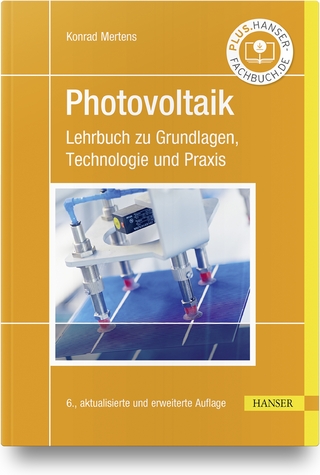
Mirage
Power, Politics, And the Hidden History of Arabian Oil
Seiten
2005
Prometheus Books (Verlag)
978-1-59102-346-3 (ISBN)
Prometheus Books (Verlag)
978-1-59102-346-3 (ISBN)
- Keine Verlagsinformationen verfügbar
- Artikel merken
Against a backdrop of international intrigue and folly in high places, this work underscores the fact that the Arab sheikdoms after World War I were virtual outposts of the Raj - British rule from India, which helps explain the political manoeuvring that kept the Arab kingdoms from gaining independence and profiting from their own oil reserves.
At the close of World War I, the great oil reserves of the Arabian Peninsula lay hidden beneath the desert sands. Westerners dismissed today's opulent Gulf States as little valued back lots among the rich real estate that made up the British Empire. Although the British adeptly appropriated the underground petroleum lakes in Iran and then in Iraq, across the water on the Arab side of the Persian Gulf the entire peninsula was deemed worthless by world experts who insisted, "There is no oil in Arabia."
In this fascinating history of the discovery, development, and exploitation of Middle East oil, international journalist Aileen Keating tells a largely unknown story rich in drama, conflict, and comic interludes. She reveals how the experts could be so wrong for so long and why the fabulously rich oilfields of Bahrain, Kuwait, and Saudi Arabia remained untapped for years after they were discovered by a colorful New Zealander named Frank Holmes.
Denied the recognition he is due in the West, Frank Holmes has been honored as Abu al-Naft —"the Father of Oil" — by the Arabs of the Persian Gulf since the early 1920s. The stories behind the official downplaying of Holmes's crucial role by British and American oil executives and government officials reveal a great deal about the fiercely competitive power grabs and injustices that characterized both colonialism and petroleum development in the Middle East.
Keating's authoritative narrative is based on years of research in original archives across the world. She explodes many myths, including the widely held notion that oil companies and geological experts of the time really did know that there was oil in Arabia but kept the knowledge under wraps to keep competitors away. Against an exotic backdrop of international intrigue and folly in high places, Keating also underscores the fact that the Arab sheikdoms after World War I were virtual outposts of the Raj (British rule from India), which helps to explain much about the political maneuvering that kept the Arab kingdoms from gaining independence and profiting from their own oil reserves for many decades.
Complete with maps and photos, a "who's who" of key persons, and copious notes, Mirage is both a work of in-depth scholarship and an engaging story of power and politics with striking relevance for our time.
At the close of World War I, the great oil reserves of the Arabian Peninsula lay hidden beneath the desert sands. Westerners dismissed today's opulent Gulf States as little valued back lots among the rich real estate that made up the British Empire. Although the British adeptly appropriated the underground petroleum lakes in Iran and then in Iraq, across the water on the Arab side of the Persian Gulf the entire peninsula was deemed worthless by world experts who insisted, "There is no oil in Arabia."
In this fascinating history of the discovery, development, and exploitation of Middle East oil, international journalist Aileen Keating tells a largely unknown story rich in drama, conflict, and comic interludes. She reveals how the experts could be so wrong for so long and why the fabulously rich oilfields of Bahrain, Kuwait, and Saudi Arabia remained untapped for years after they were discovered by a colorful New Zealander named Frank Holmes.
Denied the recognition he is due in the West, Frank Holmes has been honored as Abu al-Naft —"the Father of Oil" — by the Arabs of the Persian Gulf since the early 1920s. The stories behind the official downplaying of Holmes's crucial role by British and American oil executives and government officials reveal a great deal about the fiercely competitive power grabs and injustices that characterized both colonialism and petroleum development in the Middle East.
Keating's authoritative narrative is based on years of research in original archives across the world. She explodes many myths, including the widely held notion that oil companies and geological experts of the time really did know that there was oil in Arabia but kept the knowledge under wraps to keep competitors away. Against an exotic backdrop of international intrigue and folly in high places, Keating also underscores the fact that the Arab sheikdoms after World War I were virtual outposts of the Raj (British rule from India), which helps to explain much about the political maneuvering that kept the Arab kingdoms from gaining independence and profiting from their own oil reserves for many decades.
Complete with maps and photos, a "who's who" of key persons, and copious notes, Mirage is both a work of in-depth scholarship and an engaging story of power and politics with striking relevance for our time.
Aileen Keating, Ph.D. was associated with the Centre for Arab and Islamic Studies at Australian National University, Canberra. She came to academia after a twenty-year career as an international journalist, having worked as the Arab Gulf Reporter for Time, Fortune, and Life.
| Erscheint lt. Verlag | 6.9.2005 |
|---|---|
| Verlagsort | Amherst |
| Sprache | englisch |
| Themenwelt | Naturwissenschaften ► Biologie ► Ökologie / Naturschutz |
| Technik ► Elektrotechnik / Energietechnik | |
| ISBN-10 | 1-59102-346-7 / 1591023467 |
| ISBN-13 | 978-1-59102-346-3 / 9781591023463 |
| Zustand | Neuware |
| Haben Sie eine Frage zum Produkt? |
Mehr entdecken
aus dem Bereich
aus dem Bereich
Lehrbuch zu Grundlagen, Technologie und Praxis
Buch | Hardcover (2022)
Hanser (Verlag)
34,99 €


